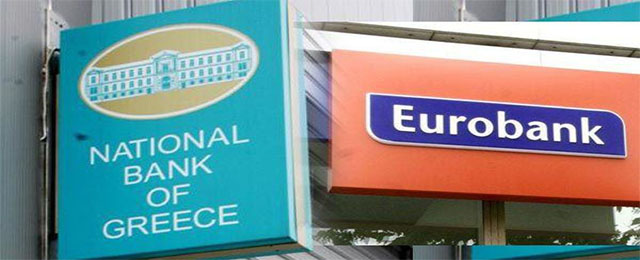The group of investors includes Fairfax, WLR Funds, Capital Research and Management Funds, Mackenzie Funds, Fidelity Funds and Brookfield. The bulk of the offered amount stems from Capital (557 million) and Fairfax (400 million).
Fairfax and WLR Funds have committed to a 6-month lock-up period and have also declared their intention to actively participate in Eurobank’ corporate governance.
The capital injection of 1.33 billion euros makes those anchor investors Eurobank’s second largest shareholder, controlling a stake of 29.6 percent.
The next phase involves an international offering via a private placement through a book building process, reportedly scheduled for April 25-29, and a public offering in Greece. Both transactions aim to raise the 1.53 billion euros not covered by the anchor investors.
According to the new bank recapitalisation legislation, should private investor participation cover 50 percent or more of the total capital increase, the HFSF will have restricted voting rights on the shares it already owns. The HFSF has also committed to a 6-month lock-up period if this situation arises.
The HFSF became Eurobank’s dominant shareholder, controlling a stake of 95.2 percent, after it fully covered its capital needs of 5.84 billion last year. In case private investors fully cover the capital increase of 2.86 billion, HFSF share will be diluted to 34.7 percent, remaining above the critical threshold of 33 percent.
Of more significance, though, is the price of 0.30 euros offered by the anchor investors. This is equal to the nominal share value, also set as the minimum acceptable price for the capital increase.
This price implies an 80 percent discount on the 1.54 euros per share that the HFSF bought the Eurobank shares last year.
From a valuation perspective and assuming that (new) private investors fully cover the whole amount of the capital increase at a price of 0.30, this would result in a 28 percent dilution of the tangible book value per share (TBV) to 0.39 euros from 0.54 in 2013. The former (0.39 euros) incorporates the capital enhancement and the new shares to be issued, while the latter (0.54 euros) takes into account figures reported in 2013.
Based on the April 15 closing price – the last before HFSF’s announcement – of 0.406 euros, this means that the stock is trading 1.05x its 2013 pro-forma (for the capital increase) TBV compared to 0.75x its 2013 reported TBV. For new investors that will acquire shares via the capital increase process at a price of 0.30, the respective price-to-book value (P/TBV) stands at 0.77x.
If one could argue that a fair value of Eurobank shares would be trading at a 1x TBV, this would translate into a share price of 0.39. That price and valuation implies a 33 percent theoretical gain for new investors.
Although this would signify a significant profit, it is way below the 100 percent potential gain suggested by some commentators, which was based on the same price assumptions. Note that similar conclusions could be drawn if the previous calculations are based on the BV rather than the TBV.






Does anybody know, if this offering is available for retail investors outside Greece. My salses person at UBS told me, the offering is only offered to retail investors in Greece and to instutitional clients (investment funds and pension funds) ouside Greece.
Thanks for any reply.